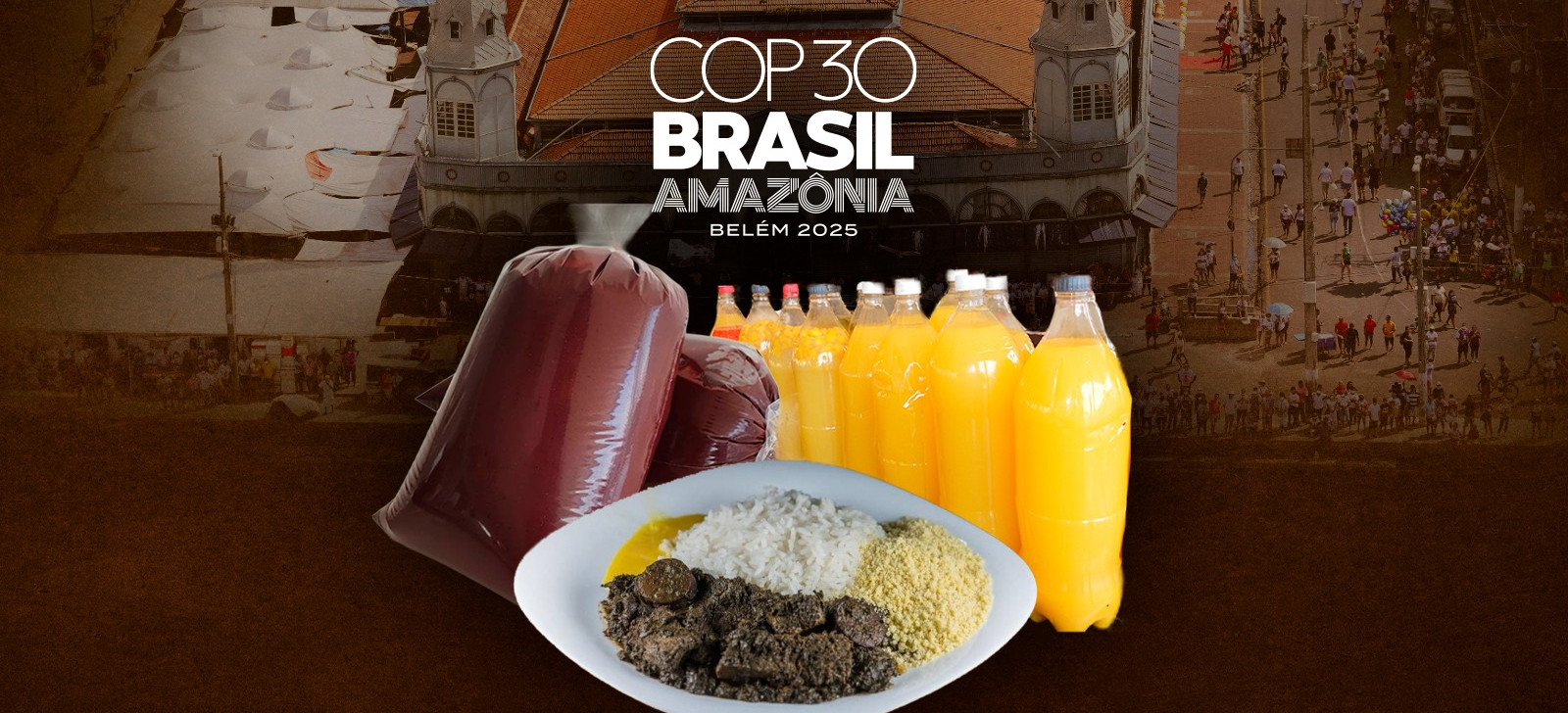COP30 bans traditional Amazonian dishes at event in Pará
18 de August de 2025

By Jadson Lima – From Cenarium
MANAUS (AM) – The Organization of Ibero-American States (OEI) released a public notice this week banning traditional Amazonian products during the 30th United Nations Climate Change Conference of 2025 (COP30), which will take place between November 10 and 21 of this year. Among the dishes that may not be offered are açaí, tucupi and maniçoba.
The OEI is responsible for contracting services for the first climate event held in the Amazon, through an agreement with the federal government. The entity points out that the foods on the list present some type of risk. Also included are mayonnaise, raw oysters, undercooked meats and fresh fruit juices, according to the newspaper O Globo.

The document states that the fruit carries a “risk of contamination by Trypanosoma cruzi (the causative agent of Chagas disease), if not pasteurized.” Thus, all types of açaí are prohibited at the conference. Regarding tucupi and maniçoba, the OEI claims that both may “contain natural toxins if not properly prepared.”

Both maniçoba and tucupi contain hydrocyanic acid, a toxic compound that may pose health risks. To make them safe for consumption, a long preparation process is required: in the case of maniçoba, cassava leaves must be ground and cooked for approximately seven days. Tucupi, on the other hand, goes through fermentation and boiling stages, which help neutralize or eliminate the substance.
Maniçoba is an Indigenous dish, typical of Pará’s cuisine (Reproduction/Agência Pará)
“The list of foods presented must be strictly followed in the preparation of menus. Failure to comply with this requirement may result in the request for item replacement,” reads a passage from the public notice.
The document establishes that each restaurant category must follow specific rules in the preparation of menus. According to the OEI, at least six culinary styles have been defined: International VIP, Brazilian/Regional VIP, Italian, Vegan/Vegetarian, Pan-American and Brazilian/Regional.

In International VIP-standard restaurants, representation from at least four continents is required, valuing original techniques and seasonings combined with a modern presentation. Meanwhile, establishments dedicated to Pan-American cuisine must encompass the cuisines of North, Central and South America, prioritizing the use of typical ingredients such as corn, cassava, quinoa, cocoa and tropical fruits.
Prohibited items
- Açaí – presents risk of contamination by Trypanosoma cruzi, the parasite that transmits Chagas disease.
- Tucupi and maniçoba – according to the public notice, may contain natural toxins if not properly prepared.
- Raw oysters and undercooked meats – pose risk of virus and bacteria transmission.

